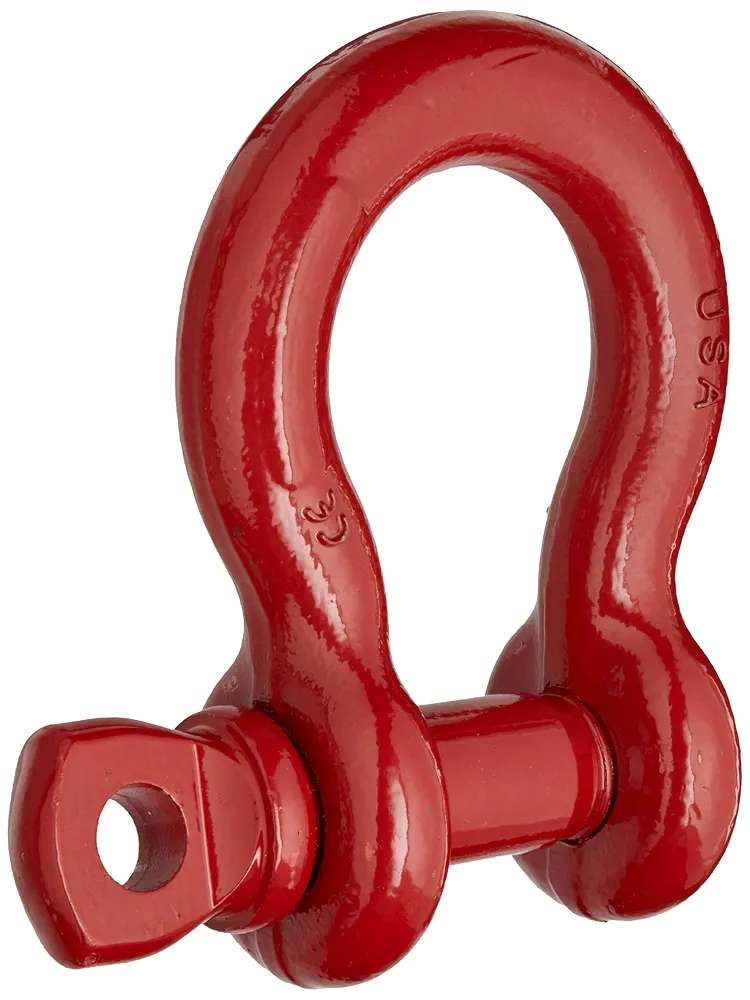Our staff will contact you within 12 hours, You can also contact us through the following ways:
Contact US WhatsApp: +8618766656705
- Email: [email protected]
- Tel: +8618766656705
- Web: https://www.toponechain.com/
In rigging, lifting, and marine operations, shackles are indispensable components that connect chains, ropes, or lifting devices. Among the different types, the forelock shackle is especially valued for its safety and reliability. Designed with a removable pin secured by a forelock (cotter pin), it ensures the shackle pin does not rotate or loosen during use. This makes it an ideal choice for industries where load security and worker safety are critical.
A forelock shackle is a U-shaped metal connector with a removable bolt or pin, reinforced with a forelock (cotter pin or split pin) to prevent accidental loosening. This design is commonly used in:
Marine applications, where vibration and movement could loosen standard shackles.
Heavy lifting and rigging, where secure connections must be guaranteed.
Construction and offshore projects, where reliability under dynamic loads is essential.
Key features include:
High-strength forged steel body for durability.
Corrosion resistance with galvanized or alloy finishes.
Forelock safety system to lock the pin in place.
Compliance with international standards such as EN 13889 and ASME B30.26.

Using a forelock shackle offers several advantages compared to standard shackles:
Enhanced Security – The forelock prevents the pin from backing out during vibration.
Versatility – Suitable for connecting chains, wire ropes, and lifting slings.
Durability – Withstands harsh environments, including marine and offshore conditions.
Easy Inspection – The forelock system provides visible confirmation that the pin is secured.
Forelock shackles are widely used across different sectors:
Marine Industry: Securing anchor chains, mooring lines, and deck equipment.
Construction: Connecting lifting chains, rigging equipment, and structural components.
Mining: Withstanding vibration and shock loads in demanding environments.
Oil & Gas Offshore: Ensuring safe load handling under extreme conditions.
Transport & Logistics: Used for cargo securing and load restraint systems.
Feature | Forelock Shackle | Screw Pin Shackle |
Pin Security | Locked with cotter pin, prevents loosening | May loosen under vibration |
Best Use | Long-term or dynamic load applications | Quick, temporary connections |
Inspection | Easy to confirm lock visually | Requires manual torque check |
Durability | Excellent under continuous stress | Good for light to medium duty |
This table highlights why forelock shackles are preferred in industries where safety and vibration resistance are critical.
To maximize performance and safety:
Check Working Load Limit (WLL) before each lift.
Inspect pins and forelocks for wear, bending, or corrosion.
Replace cotter pins if damaged or missing.
Avoid side loading; shackles are designed for straight-line pulls.
Store properly in a dry environment to prevent rust.
The forelock shackle is a vital rigging component that combines strength, safety, and reliability. Its secure pin-locking design makes it ideal for marine, offshore, and heavy lifting industries where safety cannot be compromised.